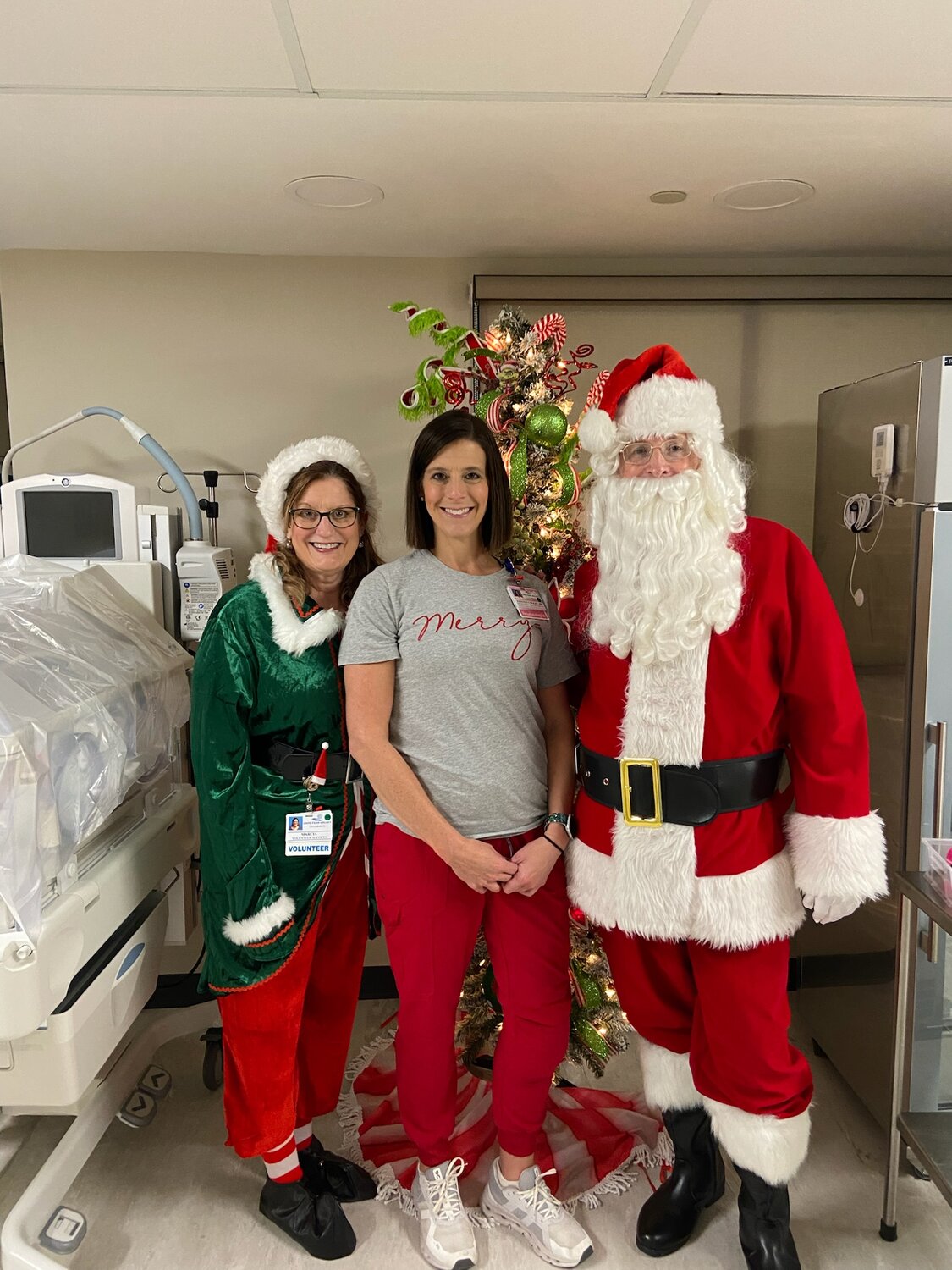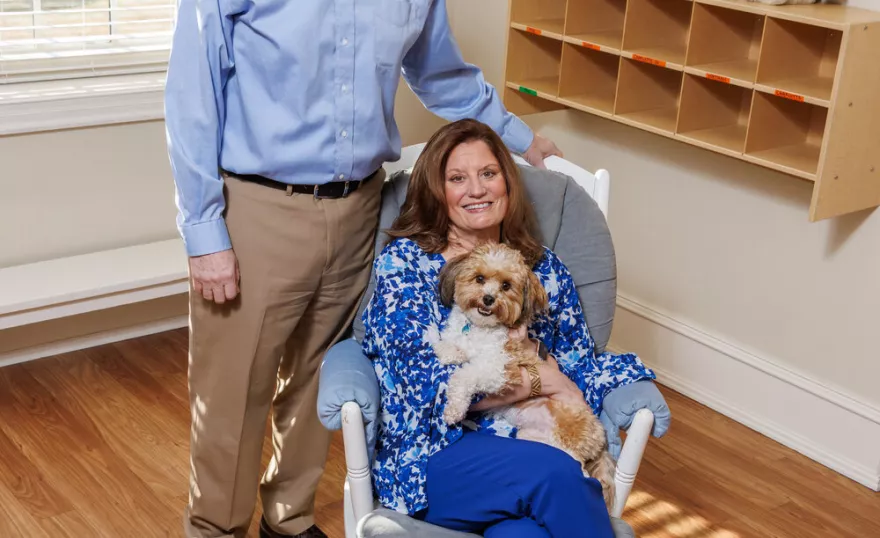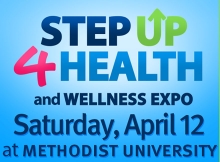General News
When Mike and Marcia Garrett made their way to Fayetteville in the summer of 2015, they only expected to be here for two years. Mike had been a pastor at a church in Atlanta for 12 years, and the Garretts accepted a call for him to take up the interim pastor post at First Presbyterian Church in Cumberland County.
Marcia, passionate and full of energy, had always found something outside of being a pastor’s wife to do, such as serving as a PTA president. When the Garretts moved to Fayetteville, though, Marcia didn’t want to get too involved since their stay in Cumberland County would likely be short. But when the church picked Mike to be their permanent pastor, she wanted to find something to sink her teeth into, to invest time in.
She found babies.
But not just any babies: the babies in the Neonatal Intensive Care Unit at Cape Fear Valley Medical Center, a place Marcia now calls her “village.” Since 2018, Marcia has spent many hours and days at the NICU doing something very simple, but incredibly impactful: cuddling at-risk newborns.
“They are my heart,” she says. “It gives me great joy. It’s that holding that makes all the difference in the world.”

Inside the NICU
Imagine you’re working on a project and you have 13 weeks until your deadline. You’re not nearly finished yet because you think you still have time. All of a sudden the project is due — and that project is your body physically pushing a baby out of it.
Daphne Nault found herself, surprisingly, in that predicament at Christmas in 2022, about to deliver her first child, a boy named Declan, when she was 27 weeks pregnant. She said she wasn’t even really showing yet.
“It was so traumatic,” Nault says. “I just went to the hospital. I was out and about in town, so I called my husband and said I was going to the hospital. They immediately rushed me back to find out I was having my baby that day. I was like, ‘What?’”
Declan was taken to the Cape Fear Valley NICU after birth. For that first day, Daphne wasn’t allowed to see Declan because she had lost so much blood. When she did finally see him, it was akin to an otherworldly experience.
“He was in a box and we couldn’t touch him,” she says. “I joke about it now, but he looked like an alien, because he didn’t look like what a baby was supposed to look like. We had our birth plan and nothing went like that.”
Having your child go to the NICU might be the height of fear and panic for a new parent. Babies go to the NICU when they are born prematurely or face severe complications from their gestation and/or birth. Researchers and academic studies estimate that around 10% or more of newborns end up in the NICU, according to the Journal of Perinatology.
As expected, life isn’t all sunshine and roses for newborns who end up in the NICU. Kristen Coggin has worked as a neonatologist for 12 years and is currently the medical director of the NICU at Cape Fear Valley. She said the NICU can be “really challenging some days.” Some babies will be in the NICU for a few days, but others, Coggin says, may stay for weeks or even months. That’s what happened with Declan. Originally due in March 2023 but born in December 2022, he was not released from the hospital until April 12, after his due date.
“It’s crazy, the roller coaster you go through every day,” Nault says. “We never had an idea of when he was going home until two days before we could take him home.”
The role of cuddlers
The cuddling program at the Cape Fear Valley NICU was in place before Marcia Garrett arrived in 2018, but she became the program coordinator shortly after joining.
It’s fairly well-established that infants who receive physical touch early and often have better neurodevelopment, and skin-to-skin contact has been found to improve attachment and emotional connection. For babies who are in the NICU, when they can’t be with their parents all the time, volunteer cuddlers step in and play that physical touch role.
“We’re unfortunately in a situation where babies end up in the NICU for weeks or even months,” Coggin says. “Families do their best to be here when they can, so the cuddlers do a great job to fill in that gap when they can.”
Studies have found a tangible connection between physical touch and earlier release times for babies in the NICU, particularly those who have Neonatal Abstinence Syndrome (NAS). Babies affected with NAS were exposed to opioids for a length of time while in the womb and struggle with withdrawal when born, according to MedlinePlus. This can lead to trembling, sleep problems, seizures, poor feeding, and other symptoms. Cuddling programs like the one at Cape Fear Valley can help ease those symptoms by providing physical touch to babies when parents can’t be there.
Cape Fear Valley utilizes the “Eat, Sleep, Console” model, a practice that is growing in use in NICUs across the county. The model’s goal is to reduce medication used to manage symptoms from NAS by increasing the amount of time a baby receives physical comfort. In a June 2023 study published in the New England Journal of Medicine, researchers conducted a trial of “Eat, Sleep, Console” in 26 U.S. hospitals and found that infants with NAS who received treatment in the “Eat, Sleep, Console” model were released from the hospital nearly one week earlier on average than those who had received usual care.
The cuddling program at Cape Fear Valley is one way that the NICU implements “Eat, Sleep, Console.”
“Life goes on despite having a baby in the NICU,” Coggin says, “and the cuddlers have stood in the gap for moms and dads who couldn’t be here and have really helped make that a success. Babies are getting in and out more quickly, the length of stay is being improved, they’re getting less medication.”
A normal cuddling shift, Marcia says, is at least three hours. One cuddler is in the NICU at a time and is available as needed to assist the nurses.
“You are there to spot them,” she says. “When it gets so busy, and a baby is just unhappy — they’re not wet or need a feed — that’s where we step in.”
Nault says she went back to work soon after recovering from giving birth to Declan, and knowing that volunteers would be holding her son every so often was comforting to her.
“To see one of the other volunteers in there holding him and to get that interaction when I couldn’t be there 24/7, it was amazing,” she says. “He wasn’t by himself. It was super comforting. It was really nice knowing that other people were there.”
But what Coggin adds, and Marcia found out quickly, is that the cuddlers also help the NICU staff significantly. Marcia says the cuddlers will sometimes get lunch for nurses during busy hours and help any other way they can with some non-medical tasks.
“The cuddlers not only provide us with some respite but the general atmosphere is just brighter and warmer when they’re here,” Coggin says. “They come in with their pink jackets, they’re smiling, they’re happy to be here. You can tell that they’re here because they genuinely love to be here.”
Marcia makes a mark
Mike Garrett says he is very proud of his wife and that the cuddling program is her way of “serving God and serving other people.”
“I’m a big believer in usually good ministry comes from the bottom up,” Mike says. “Instead of just saying, ‘I have an idea, let’s try it,’ you discover people doing good things and you say, ‘Maybe this is what we should be embracing.’ For me, that is how this happened. This started as something Marcia got involved with and I came alongside as opposed to being a big idea that we had and imposed.”
He came alongside by playing Santa Claus, with Marcia as “Cuddles the Elf,” in the NICU at Christmas in 2021. The whole NICU unit, Marcia says, bought in, and Mike soon began making the rounds to the pediatric and emergency department units as well. Both Marcia and Mike, Coggin says, are very much appreciated by the NICU staff.
“She has quickly taken a leadership role and has really become a real part of our NICU family,” Coggin says. “She does a lot in regard to staff morale, visits, drop-ins, holiday visits, and has been a great all-around part of what we do. She and her husband are really a dynamic duo. They have been really good to us.”
Nault met Mike and Marcia when they came to the hospital as Santa Claus and Santa’s elf.
“They were wonderful,” Nault says. “It was stressful when your kid comes so early and you weren’t expecting them to be there. Lots of holidays, and during the holidays in the NICU, everybody goes all out.”
For her part, Marcia says she has found a place there.
“I feel like I found home,” she says. “It was the nurses that have been there a long time that embraced me and I was able to ask things. I made my mistakes and got sent down to the principal’s office, things you can ask and can’t ask. I live to be up there … That’s my peace. My favorite saying is that you can’t scare me, I rock babies in the NICU.”
She briefly lost that home when the Covid-19 pandemic hit in 2020, but it didn’t take long for her to reconnect with her NICU family. When the Garretts’ first granddaughter was born that summer, a group of NICU nurses visited her home to celebrate — outside, with precautions taken, of course.
A continuing service
Nault says the volunteers and what they did for her son “warmed (her) heart,” and Declan became, in her words, “like a family member” to them.
“He was there for so long, and at the end, everybody knew Declan and everybody knew his story,” she says. “It was wonderful, all the volunteers.”
That’s the goal after all, Marcia says. Parents ending up in the NICU, for whatever reason, are going through a stressful time along with the babies and the hospital staff, and any way she and her volunteers can help is worth it. There are times, she says, when she will go to the NICU in the middle of the night to do some cuddling, and Coggin says the unit has a list of trustworthy and veteran volunteers who are on-call.
“It truly takes a village, and our village can’t just be limited to those who are employed,” Coggin says. “We are dependent on those who are on the outside who are willing to come inside and willing to make a difference.”
Mike says the work that Marcia does in volunteering with the cuddlers connects deeply to their Christian faith by one word: compassion.
“Compassion is certainly at the heart of the Christian faith, and not just compassion but compassion for the vulnerable,” Mike says. “Certainly there is no one more vulnerable than a premature infant. When you sense the vulnerability, not just of the infants but their parents and their support network, it seems to make really good sense.”
Marcia says volunteers need to be willing to be there for the hard times. You can’t pick the babies up or feed them or change them, but you can hold onto them, Marcia says.
“You will hear buzzers and beepers and there are lights going off,” she says. “There is nothing you can do. So you need to take a breath because that’s being done by the best of the best. What you’re there to do is just love on that little dolly.”
It may not have been the loving Marcia had planned to do when she and her husband moved to Fayetteville nine years ago, expecting to stay two.
“God told us to come and love his people,” she says. “That’s what brought us to Fayetteville. Of course it was about the church.”
Now, it’s about so much more.




